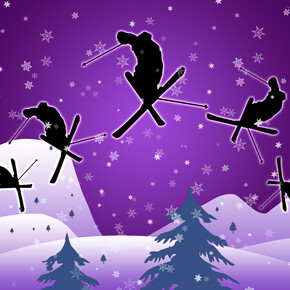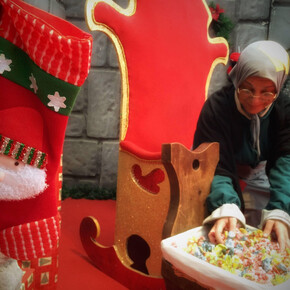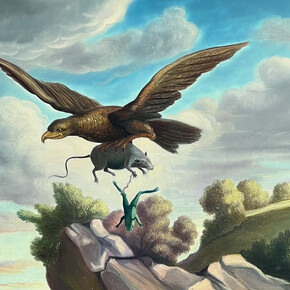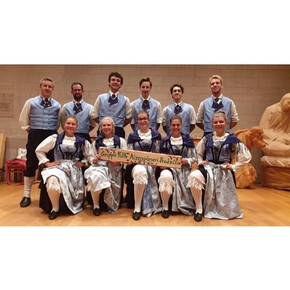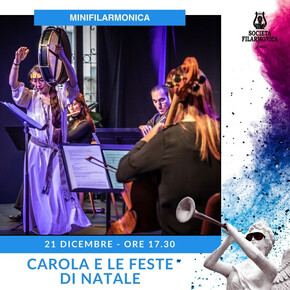Lobsters die by accidents on the road - Trento's Cuminetti Theater programming opens
The "Teatro Cuminetti" in Trento reopens its doors to the public on Wednesday 9 October 2024 and will ...
The "Teatro Cuminetti" in Trento reopens its doors to the public on Wednesday 9 October 2024 and will inaugurate its programming by hosting the first appointment of the Regional Platform for the Circuitation of Professional Live Entertainment, the initiative supported by the Trentino-Alto Adige Region and promoted by Teatro Stabile di Bolzano, Centro Servizi Culturali S. Chiara di Trento and Coordinamento Teatrale Trentino, founded in 2022 with the aim of detecting and mapping professional companies in the area through their artistic proposals.
The stage of the Teatro Cuminetti in Trento will therefore have the pleasure of welcoming "Lobsters die due to road accidents", a show staged by the Milan-based company La Petite Mort Teatro, with direction and drama by Tommaso Fermariello. With Gianluca Bozzale, Emilia Piz and Martina Testa.
“Weather is a strange thing. When we don't need it, it's nothing. Then all of a sudden there's nothing else. It's all around us. It's inside us, too. It creeps through our faces. It creeps into the mirror, flowing through my temples. And it flows silently between you and me, like an hourglass.” Carlo Rovelli – L 'ordine del Tempo
There is Aeneas who is eight years old. He likes science, animals, animal documentaries, his red shirt with a brontosaurus printed on it. Today, for the first time, he is going to see his grandmother alone. Chicca is stuck on a train stationary in the middle of nowhere. She found out she went into menopause. He wonders what it would be like to live to one hundred andfifty. She thinks her skin would be horrible at one hundred andfifty. He thinks he could do it again. There's Mrs. Adele, who's eighty-five. She's been living alone since her husband got hit. She likes to go to the hairdresser and she likes to look at the magazines that are there. Lately, however, she has been confusing. Sometimes she gets ready, puts on the yellow dress, which is the Thursday dress from the hairdresser, and sits on the chair waiting for her daughter. But the daughter doesn't come. He has a feeling. Like he's doing something wrong, but he doesn't understand what. There are our grandparents, the memories we have of them, their ninetyyears, the endless days, the friends who die, the body that goes out and the head too, and playing cards, telling about being five years younger, maybe ten. We are between the end of our twenties and the beginning of our thirties, and we feel the shortness of breath, a first back pain, a little wrinkling above the eyes, the hair becoming thin. We who a few years ago were young, immortal, and time was a friend of ours, it was on our side and it seemed to never end.
Finally, there are lobsters that have a particular characteristic that makes them enviable to most of the human race. An enzyme that is able to repair the ends of chromosomes by regenerating cells endlessly. In other words, lobsters never get old. They would be technically immortal, except that in the act of renewing the external structure of their skeleton they are particularly helpless and prey to numerous predators. Lobsters only die when something bad happens to them. Like an accident. What would it be like to be like lobsters and never get old?
The show is a multi-voice tale, which lies between fiction and self-telling, a reflection on time and ageing, on lobsters and on humans. But whatis time? What is the relationship of humans to it? "The dramaturgical and directing structure tries to reflect these questions by playing with what is the time-rhythm of the show. – explains Tommaso Fermariello - The show accelerates, slows down, takes breaks, reflects, jumps back and forth with continuous calls between chapters. And in the meantime, it continues to flow towards the inevitable end. Each chapter (Future – Present – Past) has been thought with a different dramatic and scenic language: the Future is a neutral and frontal narrative, fast, rhythmic; the Present a flow of consciousness of a character; in the Past instead the narrative is fragmented, the filter of fiction falls and reality appears disintegrated as it happens in memories. The scenic signs are meager and essential (a clock, a plant, a balloon), the dramaturgy and the actors are the focus of this show. Time and human beings, our storytelling and the public.









